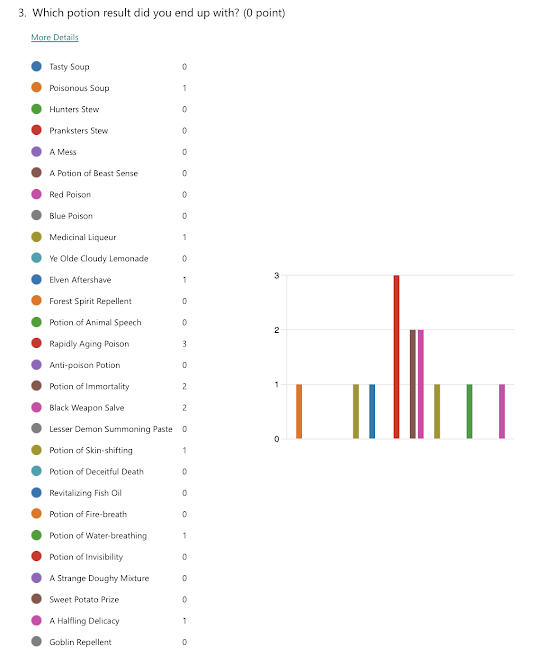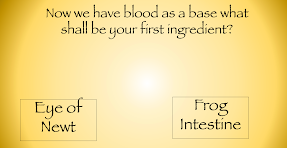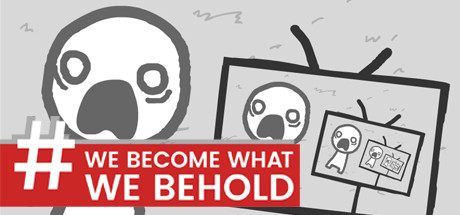At the end of the Potion Making PowerPoint game was a link to a survey so I could collect some feedback, both quantitative and qualitative. Allowing the player to discuss the deployability of the game as well as what they thought of their choices and how they would like the game to be improved or expanded.
Even with the start of the feedback their were trends to be observed with most players enjoying the game and being satisfied with their results, something I believe is due to my commitment to themes within certain choices and the constant narrator validating their choices but also how many players went down a more conventional potion making path possibly due to them starting the game with knowing they were making a potion and a more fantasy style and format being incorporated into the design.
The players qualitative answers were also of interest with those that took part and had an illustrative or art background opting for more advances with visuals such as artwork of ingredients and potions contrasted by players with a game design background giving opinions how the mechanics of the game could be expanded if it became a 3D game or a passive mobile game. This demonstrates how there is a link between player background and expectations important to be aware of when looking to create a game that changes player behaviour.
Several lessons were also learned whilst producing the game such as;
- How rapidly the complexity of the game can become when doing split choices within it, possibly why dialogue trees in some games whilst having multiple directions to go in often remain short and don't have far reaching consequences for the player.
- The idea of reusing certain ingredients across the diagram to save time during the design process and also if artwork was produced the assets could be re-used or even recoloured to produce images for other choices similar to asset re-texturing in games or re-use of models and animations.
-The curiosity of players when making choices, the fact that so many players would want to play the game to see what other choices could craft means that they have an interest in the other outcomes and consequences of their actions - this is something I want to take forward into other games where if the player makes one choice what happens to the choice they didn't make, can this be utilised toward the delivery of a message rather than all choices culminating in the same ending such as "We Become What We Behold"

















